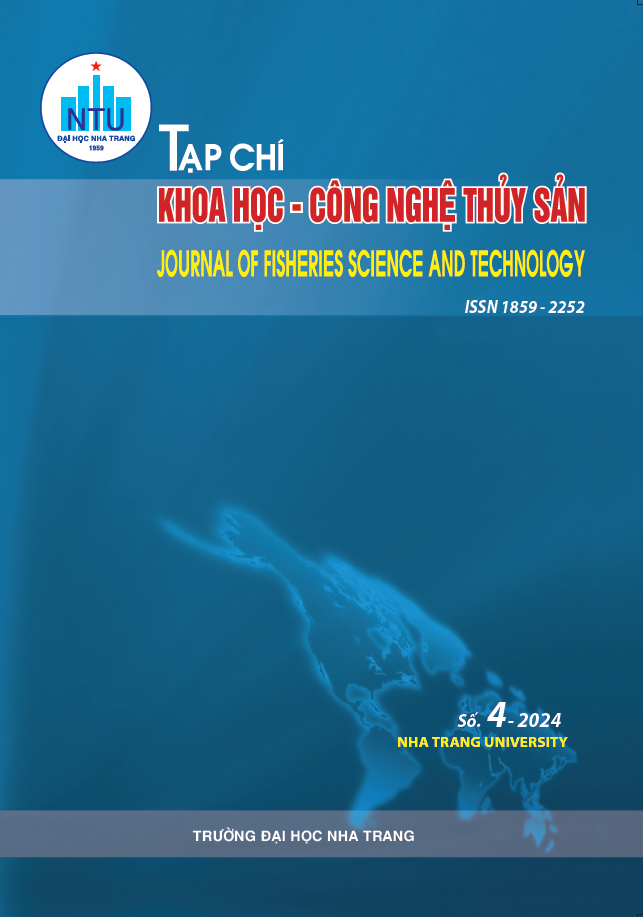##plugins.themes.huaf_theme.article.main##
Abstract
To evaluate the roles of collective economic production organizations (CEPOs) to financial efficiency, 90 whiteleg shrimp intensive farming households in Soc Trang province were interviewed. Disciptive statistics, independent sample t-test and multivariable regression were applied. The research result shows that farming scale, stocking density and yield of the CEPOs’ households are higher than that of the counterparts (50,1 PL/m2 and 4.48 ton/ha/crop, compared to 44.5 PL/m2 and 3.84 ton/ha/crop, respectively). There are no statistically significant differences in the cost indicators, but the profit is statistically significant difference between two forms (241.81 mill.VND/ha/crop of the households belong to CEPOs compared to 172.61 mill.VND/ha/crop of individual households). The CEPOs play important roles in gathering and linking production, enhancing farmers’ knowledge via technical trainings, preferential policies on capital and upgrading shrimp industry by providing guidances of ASC or VietGAP compliance practices, therefore improving farmers’ income. The results of multivariable regression also show that the CEPOs has a statistically significant effect (P=5%) on the profitability of whiteleg shrimp farmings. The study has given scientific evidence of the CEPO’s roles. Hence, the farmers should be trained and encouraged to participate in CEPOs.
Keywords: Collective, cooperative, farming cluster, intensive, whiteleg shrimp.

